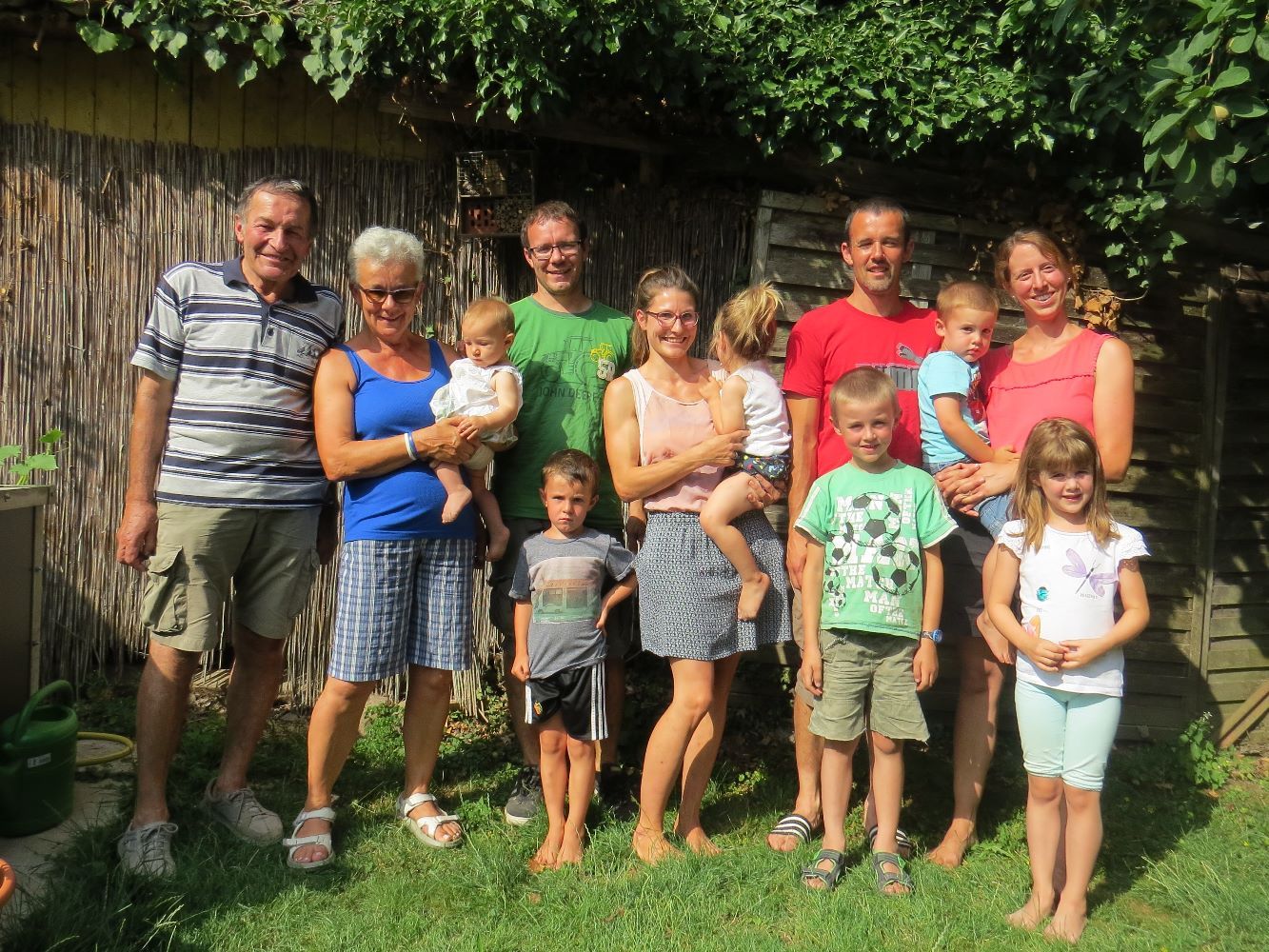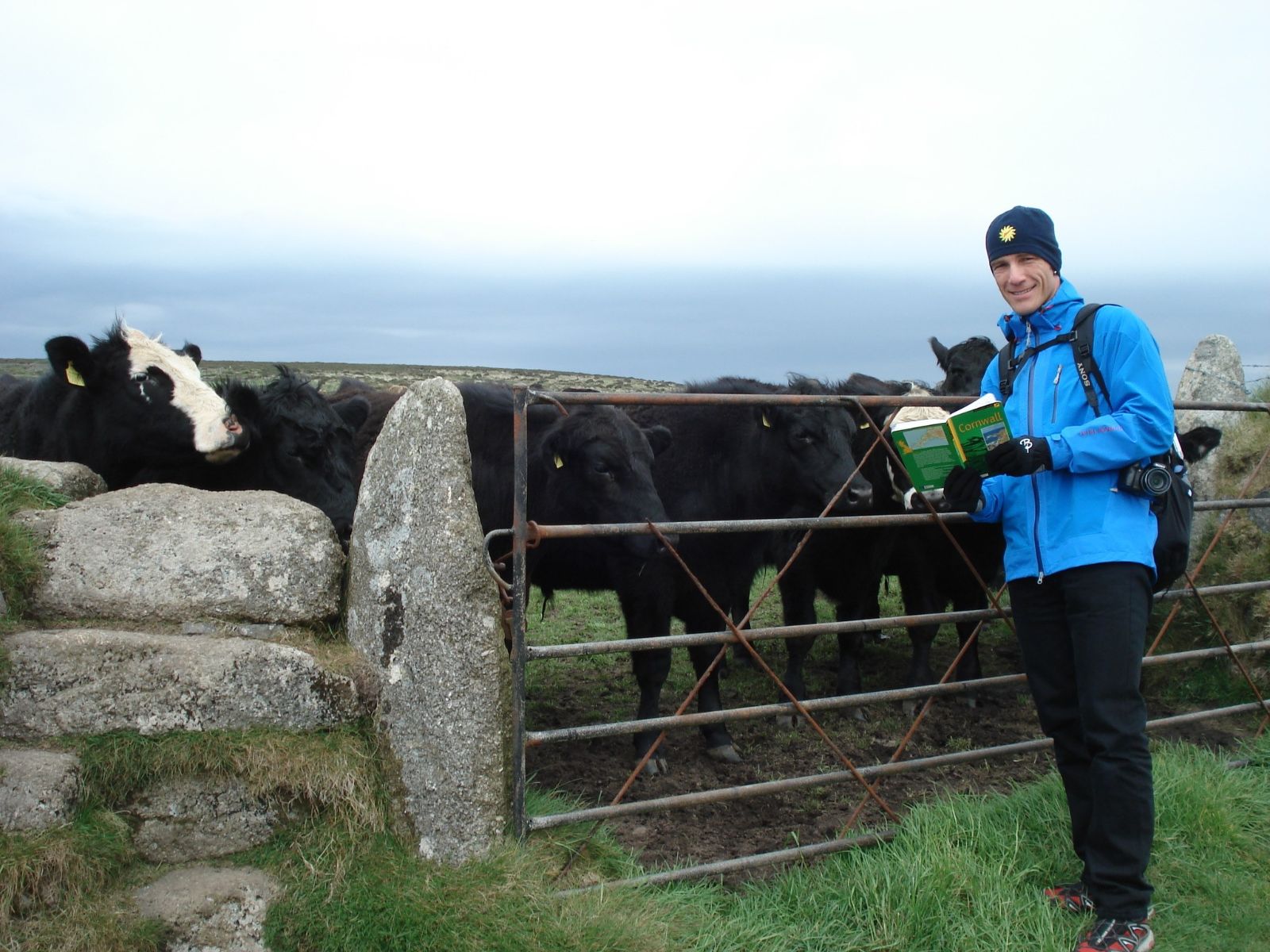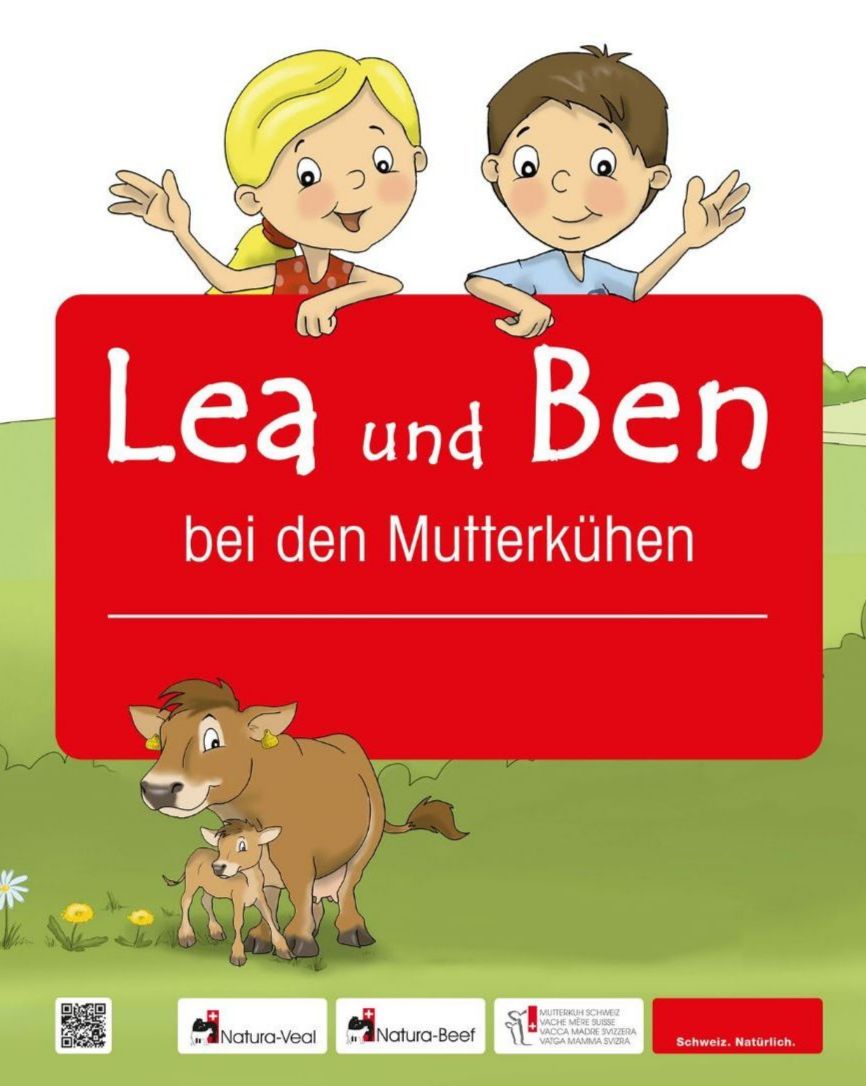Talking about beef with Patrick Gerber, Bettingen
The Gerber suckler herd on the ‘’Basler Alp“. The black in the coat of the former Holstein herd is slowly giving way to the light brown of the Limousin. (Photo: Family Gerber)
Beef.ch will take place in downtown Basel on the Barfüsserplatz in September. What does this mean for you?
I am delighted with the commitment of Suckler Cow Switzerland and I find the beef.ch super. It’s really valuable for contacts with consumers.
Why is there a need for this kind of platform for exchanges between the agricultural world and society?
It’s important to discuss directly with consumers, to respond to their needs and also explain to them that changes in agriculture can’t be made overnight. We work with nature, and all adjustments take time. But we must all learn so that we can move forward together.
Can you give an example of where you have progressed thanks to exchanges with the non-agricultural population?
15 years ago, we built our herd of suckler cows from our herd of Holstein dairy cows. Since then the proportion of Limousins in the herd has increased, but the Holstein root remains visible in certain animals. For some years now we have been using Limousin bulls, naturally without horns. This will enable us, in the long term, to meet the wish of the consumers – and our own – not to have to decorn the calves.
How do you cultivate exchanges with the non-agricultural population in your daily life?
Our farm is situated in the centre of Bettingen, which facilitates numerous contacts. We sell direct at the farm, which is open every day and draws many visitors. We also offer our products at the weekly market of Riehen from August to December.

Three generations of Gerbers live and work on the Bettingen farm (from left to right): Hanna and Werner Gerber-Amstutz, Jemina and David Gerber with Liam (5), Yael (3) and Elina (1) Heidi and Patrick Gerber-Kyburz with their three children Joel (8), Sina (7) and Elias (4).
40 suckler cows, their calves and the Limousin bull Saladin live in the village stable, rented from the canton, as well as the Gerber’s new building outside. 150 chickens also help liven up the village.
In all, the family works 57 hectares of utilised agricultural land. The Gerbers grow corn, triticale and maize for the silo on 18 ha of planted crops, and 37 hectares are set aside for meadows and grazing land. The two remaining hectares contain an orchard with apples, prunes pears and apricots.
The direct sale of fruit, Natura-Beef, dry sausages, bread, eggs apple juice and jams is a major activity, in addition to the orchard and suckler cow breeding.
More info on: www.frischvomhof.ch
Isn’t a farm in the middle of the village also a source of conflicts?
We are well aware that animal production in particular can pose problems. That’s why, in addition to limited development in the centre of the village, my father wanted to relocate the operation. At the time we kept dairy cows and pigs. But the villagers were against this, they wanted to keep the farm in the village. Consequently only one barn was built outside. Today the stable in the village centre is only used in winter. This is a time when we tend to keep the windows closed and the flies and smells are less bothersome. Working with suckler cows in the centre of the village is also less conflictual than working with dairy cattle.
Do you feel the proximity with the city of Basel?
Bettingen is part of the recreational zone of the city of Basel, but there’s no transit traffic and we also have fewer problems with waste and dog droppings in our meadows and fields than if we were on the outskirts. It’s mostly hikers that come here. So we try to take the opportunity of raising awareness; for example, we have put up information boards to show that the fields grow grain for the bread that my wife makes every Saturday for the farm shop.
Are there times when you’d prefer to run a farm further away in a quieter spot?
No, we like the contact that comes with this central location. That’s why we also founded the autumn festival, which will take place for the tenth time on 19 October 2019 and where the whole village joins in. I feel blessed, and I want to share this with others; firstly by enabling people to participate in our farm life and secondly by redistributing the proceeds of this festival to a charity project.
Are there situations in which it would be easier to be outside the village centre?
Yes, of course. From our farm we have little direct access to the grazing land, for instance. That’s why in the spring our herd is taken by truck to the « Basler Alp ». This year it snowed again on 1 April and we had to bring the animals back to the stable for ten days. It meant a bit of work, with the aid of fences, to gather and load the cows and calves and drive them back to the stable. That’s the drawback of being in the centre of the village, but the contact with the locals makes up for the extra work.
more comments
- ← Previous
- 1
- 2 (current)
- 3
- 4
- Next →





